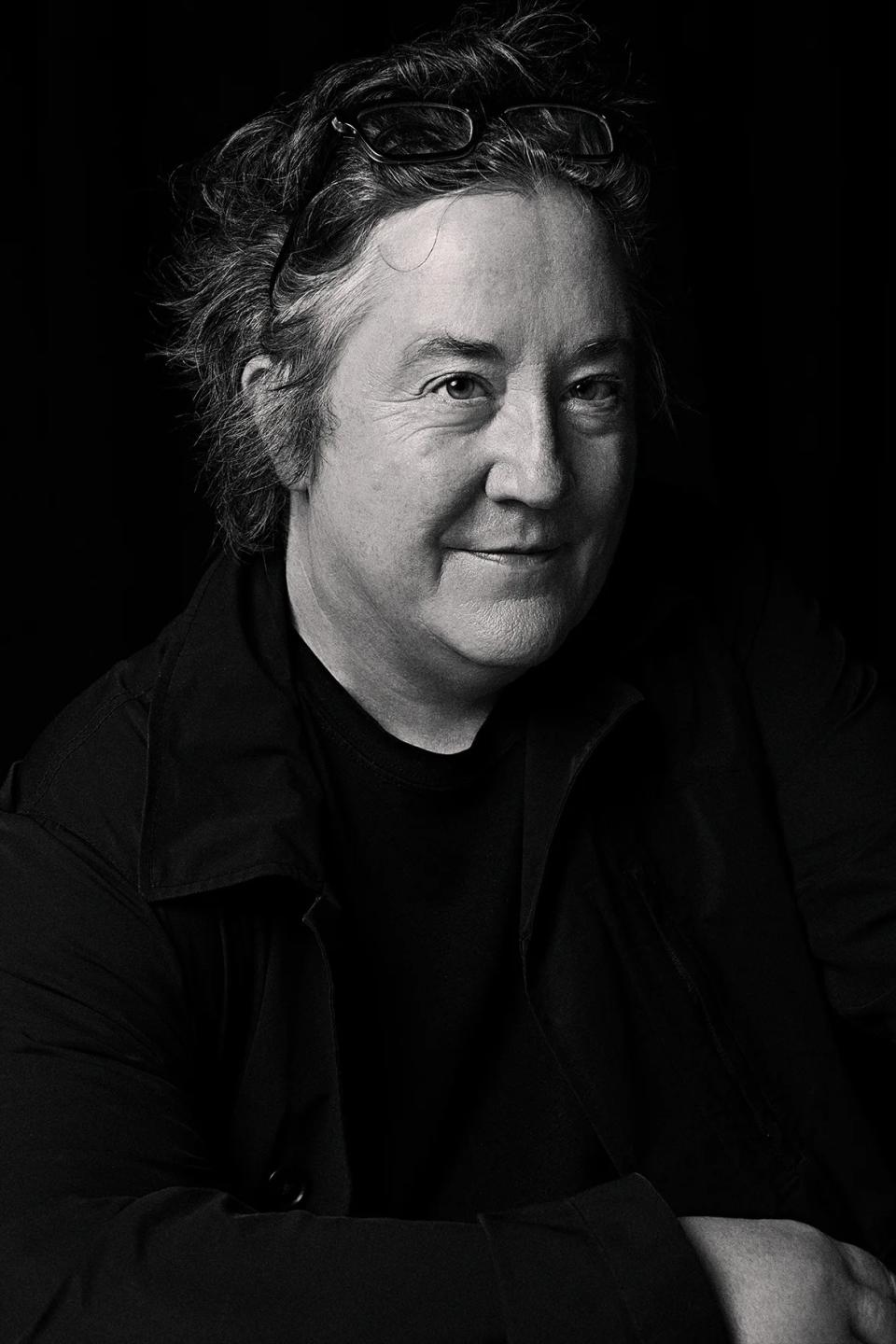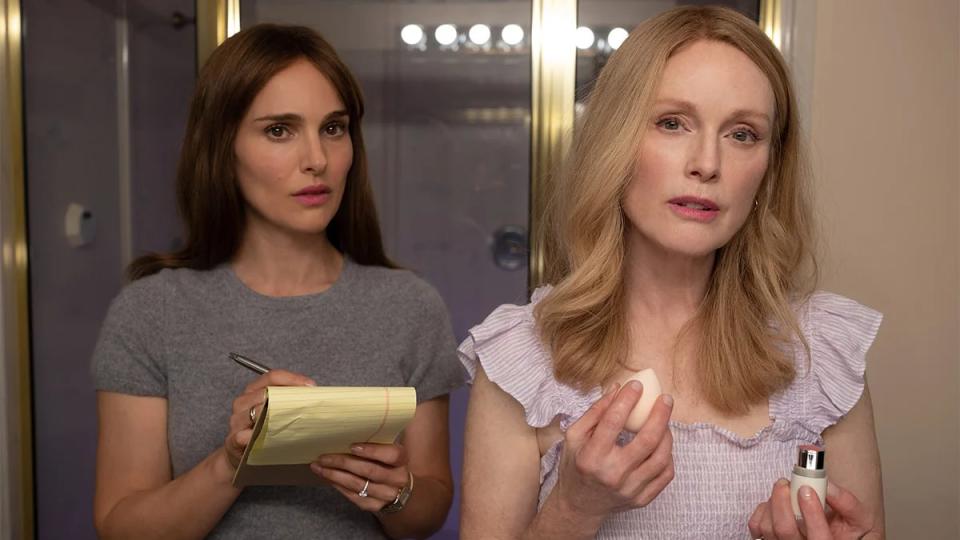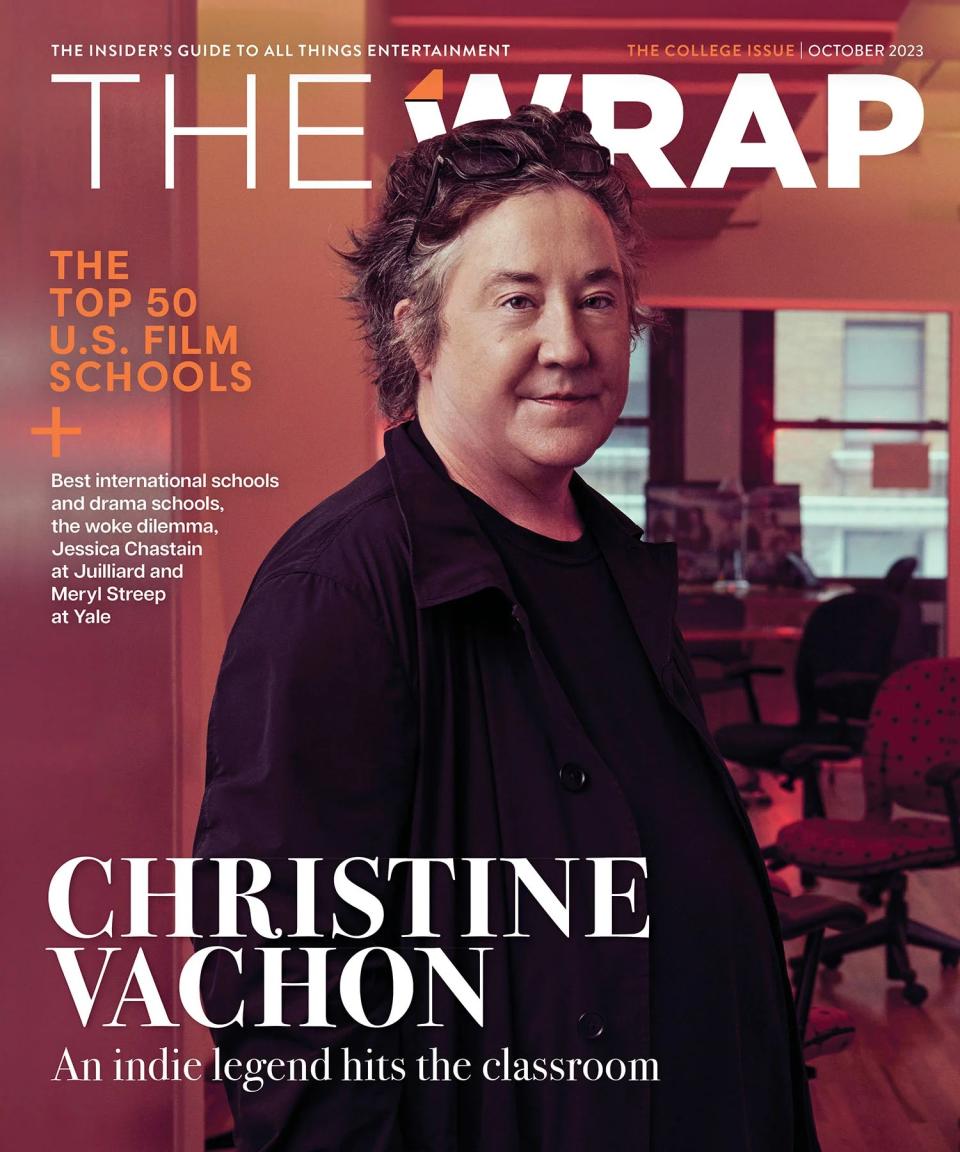How Iconic Indie Producer Christine Vachon ‘Brought the Industry Into the Classroom’
- Oops!Something went wrong.Please try again later.
- Oops!Something went wrong.Please try again later.
- Oops!Something went wrong.Please try again later.
This story about Christine Vachon first appeared in the College Issue of TheWrap’s magazine.
Over the course of more than 30 years and 100 films, Christine Vachon has become one of the most impactful producers of independent film — and as the artistic director of the MFA program at Stony Brook Manhattan, one of the most intriguing film educators as well. She founded her company, Killer Films, with fellow New York-based producer Pamela Koffler in 1996, five years into a career that had begun with Todd Haynes’ feature debut, “Poison,” and would go on to include every one of Haynes’ movies, among them “Velvet Goldmine,” “Far From Heaven,” “Carol” and the upcoming “May December.”
Vachon’s other films include Larry Clark’s “Kids,” Todd Solondz’s “Happiness,” John Cameron Mitchell’s “Hedwig and the Angry Inch,” Kimberly Peirce’s “Boys Don’t Cry” and Paul Schrader’s “First Reformed.” She’s known for working with young and first-time directors, including Celine Song, who this year won raves for her gentle love story “Past Lives.”
At Stony Brook, Vachon said that she and Killer Films “set out to build a new type of curriculum — a practical education in all forms of visual storytelling, and at state university prices.”
TheWrap sat down with Vachon at this year’s Karlovy Vary International Film Festival in the Czech Republic, where she received a special tribute and presented “Past Lives.”

These days, the future seems uncertain for independent film and film in general. Are you saying different things to film students now than you would have five, 10 or 20 years ago?
Well, yes and no. One thing I want to say about the Stony Brook program is it really did come out of my own experience. I feel like I’ve spoken at virtually every institution in America and abroad involved in teaching our young folks to be in the film business at the graduate and undergraduate level. And I was kind of shocked at how many people teach in those programs who have nothing at stake in the business.
There’s a lot of, like, “Follow your dream,” and I think, is this your dream? To be a professor here? ’Cause you’re not making movies, you know? (Laughs) And I thought, if I ever get the chance to do this, I want to bring the industry into the classroom, and I want people to experience the kind of dizzying push-me, pull-you of having a distributor come in one day and say theatrical is dead, and then the next day, a different distributor come in and say it’s more alive than it’s ever been. Because those are the contradictions that are psychotic in our business.
And the biggest thing I really try to tell my students is that there are so many different ways to be creative in the film business. So years ago, when I first started (at Stony Brook), I was supposed to have somebody pretty high up at A24 come in and talk to the class. And I don’t know what happened that night, but it slid down to the next person and down to the next person, down to the next person. And then finally the person who came in to talk was like a 25-year-old kid who was a booker. And I was like, “OK, I’ll take him.” (Laughs)
And he was so passionate. He had found his little niche and he was so passionate about booking films and about this theater versus that theater and how you had to understand that by moving this movie six blocks away, you were going to change its life in that city. Hearing that kid speak so passionately and creatively about his job was a real revelation to me — and I hope to my students, as well. That kid may stay in that position for the rest of his life and really be able to say, “I made such a difference in the life of this movie.”
I think by this point, A24 owes you the top dog.
They’ve given me the top dog many times since then. I think it was just one of those perfect storms. And honestly, I am truly grateful. It was a real lesson in exactly what I said — there’s a lot of different ways to be part of this industry.
Are you seeing more trepidation among students who want to study film now?
What I’m seeing is a lot of questions and concern about work-life balance. I think if you’re our age, we probably didn’t come up ever thinking about that. A lot of my students are more thoughtful about, how do I do this and still have a personal life and a family and take time for myself and not get burned out? And I think it’s an interesting question.

In some ways, you know, I feel like the way Killer managed to do it was by putting a limit at a certain point — like, we’re only gonna be so big. That happened almost organically. Also, we were two women and we both had kids and we figured out workarounds specific to us that probably, if we’d been bought by a big corporation, they would’ve been like, “Are you outta your mind?” So that’s a really interesting trend to me. Like, how is our business going to adjust to a new generation who has those concerns?
I asked you about film students — but are you also feeling more trepidation from filmmakers who are worried about where or how their work will be seen?
Certain filmmakers have always moved fairly easily from one medium to another, and there are some who don’t. I feel like it is an exciting time for a lot of young voices and there’s a lot of opportunity. If you’re really set in your ways, it’s probably not a great time. I had the good fortune to be one of the producers on Robert Altman’s penultimate film, “The Company” (in 2003). I really learned a lot from him, and one of the things I learned was how open he was to new ideas.
Digital was a pretty new concept then. And Bob wanted to make a certain amount of money. Pam and I were looking at the budget, and he was very curmudgeonly, as I’m sure you know. And I was like, “I don’t see how you make that money unless we don’t shoot this on film.” And he was like, “Go on.” (Laughs)
We went through the process, and if there was ever a filmmaker who was born to shoot with multiple cameras, it was him. And seeing him at his age not holding on to the old ways in any way whatsoever was incredibly exhilarating. That’s the way to be, you know? The key is not being afraid of new ideas and looking forward to what’s around the corner.
Altman had decades of experience when you worked with him, but you’re also known for working with younger directors. When you meet with somebody who might not have made a movie before, do you know right away if they are capable of doing it? You’d never watch “Past Lives” and think Celine Song was a first-time director.
She really understands the story she wants to tell, so it was very easy to help provide the scaffolding for that. I always say that the biggest problems on a movie tend to happen when everyone’s not making the same film. We’ve all seen a movie where we look at an actor and go, like, “What movie was she in?” And you just can think to yourself, what the hell happened on that set? The director must have been tearing their hair out because clearly that actor’s in their own private Idaho, you know? But if everyone is sort of on board for the same film, then almost anything is surmountable.
How did Celine come to you?
When the pandemic began, we were about a third of the way through (the Netflix miniseries) “Halston.” And I remember when the shutdown happened — you probably remember, too — we were all told two weeks. “By May, everything will be great.” And of course, it wasn’t.
So Pam started calling all her favorite agents saying, “Just send me the best scripts you have. I don’t care if they’re not available, I just want to be reading things that are fantastic.” An agent sent her “Past Lives,” and I remember her saying to me, “Oh, my God, this script I read. But it’s already set up, we can’t be on it.” And then as circumstances happened, it lost its producer, and A24 reached out to us and said, “Would you consider sitting down with Celine about this project?” So we did. And very, very quickly we got a real sense of her ability to articulate what she wanted.

Is there a special appeal in working with young filmmakers or inexperienced filmmakers?
I wouldn’t use the word inexperienced. I would just say that with a first-time director, the appeal is that they’re usually telling the story they’ve waited their whole lives to tell. When you get on a set with a first-time director who’s finally gotten there, the joy and exhilaration is so palpable. You can’t be cynical.
And as I’m sure you’re well aware, there are so many things to be cynical about in this business, and it’s awful sometimes to see bad behavior being rewarded. Or to see people struggle who should be handed the keys to the kingdom, but they’re not. So when you see a first-time director actually making that first step, you have to kiss cynicism goodbye.
As theatrical exhibition becomes less prevalent, is the way films are viewed changing the…
The stories that we tell? I remember some of those YouTube videos with filmmakers like David Lynch extolling how horrible it was to watch his movies on (a device). But we don’t have a cinema police who come to your house and say, “Did you watch ‘Lawrence of Arabia’ on your iPhone? You’re under arrest!” That genie’s out of the bottle and I can’t really spend my time trying to stuff it back in.
What’s more interesting to me is to try and figure out ways to exploit that and lean into it. That was something Todd Haynes said when he decided to do “Mildred Pierce” for HBO. He talked about the domesticity of the story and how natural it felt for it to be in a living room. I remember thinking, Wow, he’s really thinking through exactly how this story should be consumed, you know?
Has your relationship with Todd changed much over the 30 years that you’ve been working together?
It hasn’t fundamentally changed. It’s shifted as we grow and mature. I feel like Todd is at the top of his craft now, so there’s a kind of pleasure that comes with seeing that. I guess at the beginning, when we were both trying to figure out the way forward, his talent as a director was always incredibly clear to me.
You know, he just had a retrospective at the Pompidou in Paris. He sat and watched all his movies, and of course, some of them, he was like, “Oh God.” Some of them, he was like, “You know, I should have done this, I should have done that.” And some of them, he could almost watch as a viewer really, and be like, “Wow. That guy really pulled that off. (Laughs) That guy knew what he was doing.”
Read more of the College Issue here.
The post How Iconic Indie Producer Christine Vachon ‘Brought the Industry Into the Classroom’ appeared first on TheWrap.


